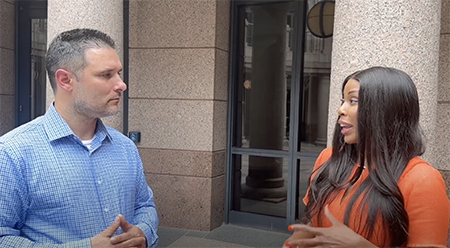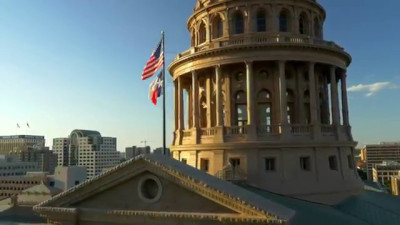Perryman: The Economic and Fiscal Price of Restricting Bathroom Access
 Travel and tourism is an important source of economic activity. Every year, millions of visitors to Texas spend billions of dollars in the state, and hundreds of thousands of individuals across Texas are employed in travel-related industries.
Travel and tourism is an important source of economic activity. Every year, millions of visitors to Texas spend billions of dollars in the state, and hundreds of thousands of individuals across Texas are employed in travel-related industries.
I have studied travel and tourism in Texas on a number of occasions dating back more than 30 years. Recently, I estimated that when multiplier effects are considered, the total benefits of travel and tourism industries include more than $128.9 billion in gross product each year and 1.4 million permanent jobs in Texas. This economic activity generates substantial tax revenue, which I found to be $7.0 billion to the State and $3.3 billion to local government entities (including cities, counties, and school districts) each year.
The San Antonio area is among the most popular destinations in Texas for travelers. The area’s attractions are numerous, including the San Antonio River Walk, historic missions such as the Alamo, museums, theaters, amusement parks, historic Market Square, a vibrant arts scene, and much more. When multiplier effects are considered, I estimate that travel and tourism generates $13.3 billion in annual gross product, 145,500 jobs, and $127.2 million in annual tax receipts in the local area.
The Texas legislature is considering action which would restrict bathroom access based on the gender on an individual’s birth certificate. Opponents criticize the bill as discriminatory toward transgender persons. Social policy can have a detrimental effect on tourism by decreasing the attractiveness of an area to event planners and potential visitors. I was recently asked by the San Antonio Area Tourism Council and Visit San Antonio to quantify the overall potential losses to the travel and tourism industry in the San Antonio area and Texas associated with the social policy currently under consideration. The full study is available for download here.
Regardless of their stated purpose, controversial laws can reduce travel and tourism. Any law with the potential to reduce attendees, for example, can cause professionals who organize conferences and events to avoid that location. In addition, scheduling an event in a location with a law that is considered to be offensive by some groups can be interpreted as support for the policy, and some organizations will choose to avoid locations with controversial laws in order to avoid the appearance of approval of the public policy.
If the Texas legislature passes a law viewed as discriminatory against lesbian, gay, bisexual, or transgender persons, it is likely that some meetings and events would be canceled and that some leisure travelers will also avoid the state. The resulting reduction in travel and tourism would involve substantial economic costs.
In states where such bills have been passed, a number of events have been moved elsewhere. We studied results in those areas and adjusted them for the size of the tourism and travel market in Texas; we also took into consideration surveys of travelers and event planners.
We estimate that reductions in travel and tourism activity would initially result in a gross product loss of almost $3.3 billion per year as well as the loss of over 35,600 full-time equivalent (FTE) jobs (based on 2016 levels of activity), with annual losses of $176.4 million in State revenue and $84.3 million in local fiscal resources. With the law in effect for a period of time, these losses could be expected to rise to $5.5 billion in annual gross product and almost 59,600 jobs. The yearly losses in State revenue are estimated to be $295.2 million, with a $141.1 million yearly decrease in local fiscal resources.
As a major center for tourism in the state, the San Antonio area would be particularly hard hit. In fact, the relative importance of tourism activity to the San Antonio area is about twice that of the state as a whole. We allocated a portion of the Texas losses to San Antonio based on its relative concentration in the tourism industry and found that the initial impact on business activity in the San Antonio-New Braunfels Metropolitan Statistical Area would likely be a loss of gross product of $411.9 million each year as well as a loss of almost 4,650 jobs. The fiscal impact on San Antonio would also be significant, with estimated lost tax receipts totaling $11.3 million per year. At maturity, the losses could be expected to rise to $689.2 million in annual gross product and almost 7,780 jobs, while lost tax receipts to local governments total $18.9 million per year in the San Antonio area. Losing even one major convention or sporting event would involve substantial costs.
It should be noted that this analysis represents minimal levels of effect. It includes the lower bound of a 95 percent confidence interval from available data for leisure travelers and convention locations in states with a variety of restrictive laws. It does not include business travelers other than for conventions, international travelers, any major concerts or sports events that might be cancelled, among many other categories without adequate data to quantify.
As the Texas legislature considers public policy to restrict bathroom access based on gender, it is important to consider not only the adverse social consequences of discriminatory legislation, but also the notable economic costs involved. Nevertheless, the potential losses of passing a bathroom bill are quite profound, resulting in billions of dollars of foregone output each year and tens of thousands of full-time equivalent jobs. Even beyond these costs are other potential negative outcomes such as extensive litigation, reduced economic development, and other issues that extend well beyond tourism which could fundamentally alter the potential growth path of the state.







